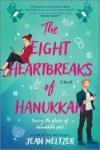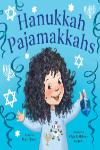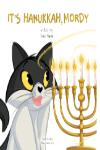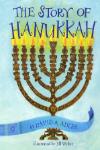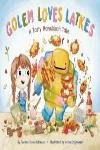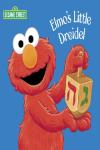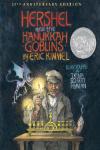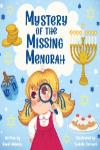Life, presence, purity; Thoughts on “Pure” by Jo Perry

Buy this book at Amazon or for Kindle
Most novels I read nowadays seem to fall into one of three categories: they are written for entertaining purposes (mysteries, thrillers, science fiction…) or try to educate me (historical fiction) or, rather infrequently, they are about the big questions of life. Jo Perry’s Pure is one of the rare books that not just dives into all three, but does an excellent job at them too. If you are so inclined, you can read it as a ghost story. It is spooky and mysterious enough to give you goosebumps regularly. It is also vague enough to let the reader’s belief system decide whether the ghost in question exists or not. If your mind is purely scientific, you can just explain the phenomena described in the book as the side effects of chemical and biological processes. However, if you are less of a skeptic, you can fully appreciate the ghost’s actions, purpose, and methods to accomplish what it wants.
I love good historical fiction novels because I always learn something about an era and/or location when/where I didn’t have a chance to live. But when does history end, and when does the present start? What do you consider events that happened three years ago? The whole world lived through a pandemic with various levels of lockdown, enforcing policies and rigor. Reading “Pure” made me realize that I already forgot the atmosphere and everyday details and dread of those not-so-distant days. The book was published almost exactly two years ago, at the end of July 2021. This means Perry was essentially chronicling the Covid months in real-time. Nevertheless, by now, it feels like a historical record of a bygone(?) era. I value this book for its precision in capturing the essence of those strange days.
However, what grabbed me most is the depth it dives into regarding the most important question: the meaning of life. Why is life worth living? Through the example of someone who first lost her parents in an absurd and guilt-inducing way, who in the beginning of the book lost her only other living relative, and who barely has a deep connection to any other human being, and who seemingly did not excel in any area of life. First, the simple act of taking care of another being, a dog, keeps her going, even if occasionally reluctantly. The related schedule, details, and needs give a framework to her life that doesn’t let her give up. Deep down, she is a caring person, who just did not find the right channel to show her love.
The next stage of her journey is caring for the dead. The physical act of cleansing a body initiates a cleansing of her soul. The latter takes much more time, and is unclear even for the protagonist what is really happening. Through being open to getting interested in someone else’s life (and death and its circumstances) she returns, or more precisely starts connecting, to humanity again. In the final stage (and spoiler alert: final pages of the book) she finds the highest and most personal meaning to keep living: her own self.
The most powerful words of the book are the ones she utters after her first ever ritual immersion: “I am alive. I am here. I am pure.” Each of these statements is equally important. The very recognition and appreciation that one is alive is a first and often hard step in a journey towards happiness. As they say, “it is better than the alternative.” As anyone who speaks Hebrew and/or studied Torah, “I am here” in Hebrew is “Hineni” and has a special connotation. Abraham answered with these words when God called upon him to sacrifice his son. Using these specific words signals that one is not shrinking from responsibilities, ready to do whatever comes in her/his life. It is a symbol of maturity to accept who we are and where we are on our journey.
A higher level of existence, beyond being present, is when you are “pure”. Beyond physical cleanliness, your soul can achieve purity too, but only after you unburdened it from the unnecessary baggage. For me, this is what the book was really about. The path to reach this level is not just uneven, but also can be unpredictable. Nevertheless, it is worth it. No, she was not explicitly suicidal, but was killing herself by thousands of slow metaphorical cuts (and way too many pills). From that steep decline, she started to become whole.
In my book, a book that prompts the kind of musings I shared above must be magnificent and Pure is. I also realized that I didn’t write much about the book itself yet. Let me assure you that it is not just the content that was awe-inspiring, but that style too. Here are some of my favorite quotes that show penmanship and creativity:
- The girl who lived there with my parents isn’t me. When my parents died, she died, too. (page 53)
- I am character–, skills– and imagination-deficient. I have a knack for failure and for lies. (69)
- I am so out of my depth right now that I’m drowning. (99)
- How can I be afraid when I’ve already lost everything? (133)
- I mean if light travels, then darkness must travel, too. I can feel it. (197)
In the end, “Pure” is not just a book, it’s a journey. A journey that takes you through the territories of human emotion, that are unfamiliar to many of us. A journey that makes you question, makes you think, makes you feel. It’s a journey that is worth taking.
Disclaimer: I have received a digital copy of this book and a small amount from the author which did not affect my review in any way.
Year first published: 2021

